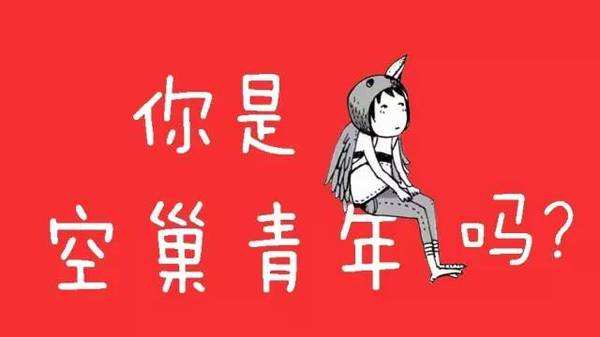當前位置: Language Tips> 新聞熱詞
分享到
3. 空巢青年
empty-nest youths

請看例句:
China has over 20m empty-nest youths aged 20 to 39, and most of them live in major cities, according to a recent survey.
最近一項調查顯示,我國20-39歲的空巢青年數量已超過2000萬,大部分空巢青年生活在大城市。
近來,空巢青年(empty-nest youths)引起了廣泛的社會關注(arouse widespread public attention)。所謂空巢青年是指那些主動選擇獨居并且單身的年輕人(single young people who choose to live alone)。他們背井離鄉(be away from their hometown),獨自一人在大都市(metropolis)打拼,大都有一份收入尚可的工作(have a well-paid job)。國家統計局數據顯示,2015年全國一人戶家庭占比為12.45%(12.45% of households nationwide were inhabited by one person in 2015),而在2000年,這一比例僅為8.3%。在這些獨居人口(solitary residents)中,空巢青年的占比越來越高。據報道,北上廣深已成為空巢青年的最大聚集地(be home to the biggest number of empty-nest youths)。
空巢青年較同齡普通青年感覺更孤獨(feel lonelier than their peers),其個人生活大多局限在出租房屋內(their personal lives are largely confined to their rented apartments)。為節省租金,他們租住的地方往往離工作地點較遠,通常要花幾小時通勤(spend hours commuting)。理財方面,空巢青年更傾向于"月光(use up the entire salary before the end of the month)"和提前消費,有21%的空巢青年有"月光"現象或輕度負債(slightly in debt),他們更愿意在更好的食物、高檔服飾和數碼產品上花錢(be more inclined to spend money on better food, high-quality clothes and digital products)。
四川大學心理學副教授王英梅稱,空巢青年的出現是大城市和較小城鎮社會經濟發展不平衡的結果(a result of imbalanced social and economic development between big cities and smaller towns)。也有專家稱,空巢是一種最正常不過的居住狀態(state of living)。年輕人在成家立業(get married and establish oneself)前選擇"無人問我粥可溫,無人與我立黃昏"的獨居狀態,是一種普遍而正常的現象(a common and normal phenomenon)。空巢意味著青年的個性發展(personality development)、個人選擇和生活方式的多樣化(diversified personal choices and lifestyles)、自由的擴展(expansion of freedom),不應被貼上悲情的標簽(be labeled pathetic)。
[相關詞匯]
月光族 moonlight clan
空巢老人 empty nester
退休者 retiree
想家 get homesick
啃老族 NEET (not in employment, education, or training) group, people who are financially dependent upon their parents
上一篇 : 一周熱詞榜(4.1-7)
下一篇 : 4月新聞熱詞匯總
分享到
電話:8610-84883645
傳真:8610-84883500
Email: languagetips@chinadaily.com.cn